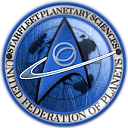Terran's Terrorizing Bacteria
Posted on 27 Feb 2014 @ 8:47pm by Alethea Coleman Ph.D
Edited on on 01 Mar 2014 @ 9:12pm
779 words; about a 4 minute read
Mission:
Episode 05 - Solstice
Location: Earth - Belgium
Timeline: MD 58 - 1500
[ON]
Coleman pinched the bridge of her nose as if that would stave off the headache. It felt like someone had stabbed a surgical knife into her forehead and out her parietal bone. It was day three of the Terraforming conference and she was feeling exhausted. Her hotel room couldn't be any further from the events she was scheduled to speak at; it might as well have taken place on bloody Mars at this point. Perhaps the slight hangover didn't help, but it was best not to think of that. She was currently sitting at a table with other experts in her field as they sat being bombarded by questions from grad students, amateurs, and perhaps one or two science journalists; at least the ones that bothered to show up. Currently Dr. Jussex was droning on about his work on atmospheric element compensators. Not one person had bothered to ask her any questions yet and considering she was the only published author in her field at the table, it annoyed her a little. When a question finally did come her way, she almost missed it.
"Huh? I'm sorry?" She managed to croak out.
Thinking he needed to elaborate instead of just repeating his question, the reporter added, "Dr. Jussex's last comment on his recent project with the Planetoid, 'Delta 45' was very critical of the recent policy changes in the selection process for terraforming projects. In your recent book, The New Terran Imperialism? Bioethics of Terraforming in the 24th Century you wrote that the policies for selection are too lax. How do you react to Dr. Jussex's comments?"
Dr. Jussex needed a good kick in the head in her opinion. She straightened up and cleared her throat. "Terraforming is not simply the process of taking a planetoid, or moon and making it habitable. The definition of terraforming is to create an environment similar to Earth. So really, it's called, Earth-forming or making an environment that is suitable to earth-like biodiversity. The decades it takes to create an atmosphere that is ideal for Earth-like life will make millions of organisms extinct through this process."
"Yes, but surely you don't think that bacteria and viruses have the rights and needs of other sentient beings. It's not like we're exterminating Betazoids to make way for other life-forms." Dr. Jussex sputtered and looked around as if he should receive applause.
Coleman absently adjusted the necklace around her neck. "As we've already learned from our mistakes with Velara 3, not all life has evolved the same way as it has on Earth. By creating an environment that is suitable to oxygen breathing organisms we do not allow other forms of life to evolve naturally. Life on earth evolved to use carbon for their basic structural and metabolic functions and learned to use DNA from aerotolerable eukaryotes to define their form. It is arrogant of us to assume that all life must evolve this way."
"Yes, but the benefits--"
"Why don't you explain the benefits of favouring carbon based life to extremophile lifeforms such as the Hosanotu slugs found in the Arsenic rich moon around Ganna 3? They've now been discovered to have the same level of complex thought as dolphins on Earth. Just because they evolved from prokaryotes that favoured aresenate as a terminal electron acceptor that they don't deserve to evolve further? It's arrogance, pure and simple. The new changes to the selection criteria is designed to prevent mass extinction on a species that hasn't been allowed to come into their own. Consider it the prime directive employed on the microscopic world not just the macroscopic, terrancentric view." She offered a scowl that made Dr. Jussex close his mouth with an audible 'clop'.
"Thank-you Dr. Coleman." the journalist said, before sitting.
No further questions came her way and when the talk was over, it was not surprising to see her head straight to the bar in her hotel. The conference would be over tomorrow, which was fine by her. In the next couple days her transfer to the USS Galileo would find her whisked away from Earth. The 59 year old had been pressured to find some suitable job for an ecologist reaching the peak of her career, but nothing would stop her from living in space again. The freedom of studying and writing in space was something she would never find teaching at the University. After her fifth glass of whiskey she made her way back to her room.
Tomorrow would be a better day, she thought.
[end]
Dr. Alethea Coleman, Phd
Ecologist
USS Galileo





 RSS Feed
RSS Feed